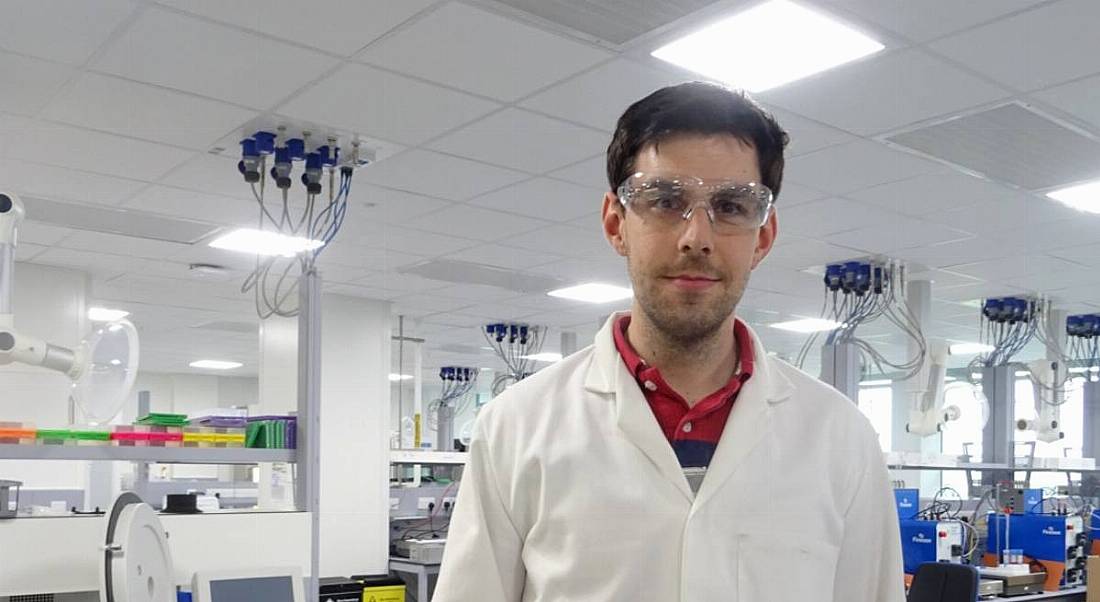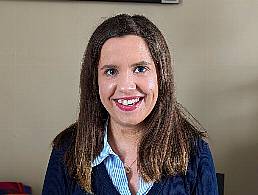For Gearóid Duane, keeping pace with the worldwide biopharmaceutical industry is a rewarding challenge.
It isn’t news to anyone that the Irish biotech industry is booming, with Ireland exporting €39bn worth of bio, pharma and chemical produce annually.
We’re big fans of biotech at Siliconrepublic.com. We recently concluded Biotech Week, a series looking at all things biotech and the challenges the industry faces.
It’s easy to be so taken in by biopharmaceuticals at a macro level, that you forget about the individuals who make up the sector.
We spoke to Gearóid Duane, a scientist with the manufacturing science and technology (MS&T) team at Bristol Myers-Squibb (BMS), about his day-to-day experience of working in an industry that is constantly evolving. He details his education, career path and how he has been helping BMS set up the lab in its massive new facility in Cruiserath.
What drew you to biopharmaceuticals?
I have always had an inquisitive mind. From a young age, I enjoyed solving problems and figuring out how things work. As a result, I studied chemical engineering followed by a PhD in chemical/bioprocess engineering. The biopharmaceutical field is a natural fit for me and allows me to pursue my natural inclinations.
What’s the best thing about working in biopharmaceuticals?
There are great people in the field and the work is very interesting, with never a dull day and no two days the same. I particularly enjoy the hands-on teamwork in the lab, setting up and running bioreactors, which allow us to mimic large-scale bioprocesses on the bench top.
This ultimately allows us to help with the development, smooth running and troubleshooting of large-scale bioprocesses, which supply life-changing medicines to patients.
What’s the most exciting development you’ve witnessed in biopharmaceuticals since you started working in it?
The growth of the biopharmaceutical industry worldwide, but especially in Ireland. When I started college in 2004, the focus was still upon traditional chemical processes. The focus since, in both academia and industry, has changed rapidly towards biological processes due to their seemingly endless potential.
As a result, there are a lot of job opportunities and potential for career progression in the biopharmaceutical industry in Ireland. This is typified by the considerable investment by BMS in their new multi-product cell culture facility in Cruiserath in Dublin.
It has been an exciting time witnessing the construction and now, as we are about to move in, setting up our new lab and helping in the start-up of the facility.
What aspect of your job did you struggle to get to grips with?
The industry is moving at an ever-increasing pace with new products and ever-shortening timelines, so you have to adapt and streamline your work in order to keep up with the pace of the advance. You also have to keep learning due to the speed at which knowledge is developing in both academia and industry, particularly around immuno-oncology.
What’s been the hardest thing you’ve had to face in your career?
My first job after my PhD required me to adapt very quickly. During a PhD, you have a long-term project, which you specialise in over four years. However, my first job after that consisted of exciting short-term projects, with multiple projects a year.
Despite applying many of the skills I developed over my PhD, it was a significant change of pace. It required much tighter deadlines to be hit and, instead of specialising in a single subject area, the projects varied greatly.
I had to adjust to this quickly and develop my project management skills and a technical flexibility/adaptability that will stand to me for the rest of my career.
If you had the power to change anything within the STEM sector, what would that be?
I would like to see a greater emphasis put on the STEM sector but particularly the biopharmaceutical field, from school through to third level. The field is growing rapidly in Ireland and, as a result, there are considerable job opportunities.
However, there is also the chance that this growth could be stifled from a shortage of appropriately qualified people to take up the available jobs.
Putting focus on the STEM sector and improving the level of education through second and third level will make more young people aware of the potential exciting careers awaiting them, and result in more skilled graduates available for employment.
Which of your personality traits makes you best suited to this sector?
My main personality traits that lend themselves to the sector are: attention to detail, inquisitiveness, problem solving, patience, and being able to work in a team and communicate cross-functionally.
Is there something in your personal life that has helped you in your job?
A history in sports, particularly team sports, has helped me develop my time management skills, along with how to work in a team, foster working relationships with colleagues and work towards a common goal.
How do you make connections with others in the STEM community?
I tend to make connections in a natural and organic way. Ireland is a small country with very open people, so you can make connections very easily.
It could be people I went to college with, current or past work colleagues, suppliers that I’ve had to deal with etc. Also, within a large multinational organisation like BMS, it is very easy to make many international and cross-functional connections. Through this network, there is nothing that can’t be found!
Has mentorship or coaching been important in your career?
Yes. I was lucky to have had an excellent and very supportive PhD supervisor. In my working career, I have been privileged to have had and currently have managers who give me the backup I require in my day-to-day work, but also give me the opportunities to develop new skillsets, take on new challenges and ultimately progress my knowledge, competencies and career.
What advice would you give to someone thinking about a career in your area?
If possible, do an internship during college in a field of interest to you. It will give you an insight into the specific field, will allow you to build experience and contacts for future employment, and ultimately allow you to see if it suits you.




